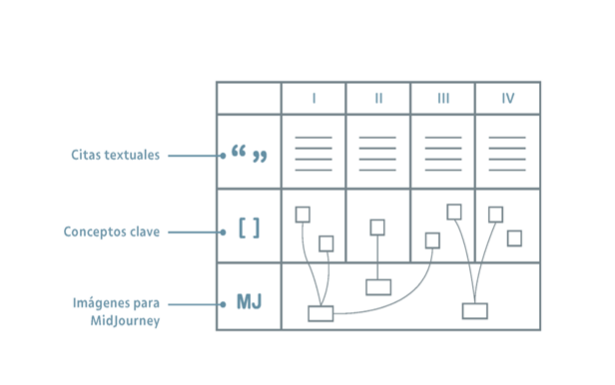Provoking Futures of Care : Codesign and Artificial Intelligence with Older People
DOI:
https://doi.org/10.46516/inmaterial.v9.199Keywords:
Care Futures, Seniors, Artificial intelligence, Co-design Methodologies, technodiversityAbstract
This article analyzes the results of an experimental investigation that explores how artificial intelligence (AI) image generators can be integrated into the care of older adults, based on a methodological prototype that generates visualizations based on their discourses. Based on a speculative and co-design approach, we worked with the experiences, connections and lives of older people, normally excluded from technological innovations, challenging the traditional and assistance basted representations of care. This critical prototype that questions techno-optimism and the predominant visions of youth-centered design, proposes a more inclusive and sensitive perspective that reflects the diversity of worldviews and aspirations of this demographic group. In dialogue with the debates that advocate for a plurality in the ways of conceiving technologies, this article emphasizes the importance of creating spaces of intervention and speculation to integrate the voices of the elderly in the design of healing technologies, offering a critique of a single technological development and its impact on Latin American society.
Downloads
References
Busciantella-Ricci, D., & Scataglini, S. (2024). "Research through co-design: Integrating Control System Theory into collaborative design practices." Design Science, 10(e3).
https:///doi.org/10.1017/dsj.2023.35
Candy, S., & Kornet Weber, K. (2019). "Turning Foresight Inside Out: An Introduction to Ethnographic Experiential Futures." Journal of Futures Studies, 23, 3-22. 10.6531/JFS.201903_23(3).0002.
Costanza-Chock, S. (2020). "Design justice: Community-Led Practices to Build the Worlds We Need". MIT Press.
Coughlin, J. F. (2021, April 30). “Old age is made up—and this concept is hurting everyone". MIT Technology Review. https://www.technologyreview.com/2019/08/21/75537/old-age-is-made-upand-this-concept-is-hurting-everyone/
Escobar, A. (2018). "Designs for the pluriverse: Radical Interdependence, Autonomy, and the Making of Worlds". Duke University Press.
Geriatric Power - Journal #139. (n.d.). https://www.e-flux.com/journal/139/559041/geriatric-power/
Giaccardi, E., & Redström, J. (2020). "Technology and More-Than-Human design". Design Issues, 36(4), 33–44. https://doi.org/10.1162/desi_a_00612
"Hospicing Modernity: A Conversation" - Journal #139. (n.d.). https://www.e-flux.com/journal/139/561748/hospicing-modernity-a-conversation/
Hui, Y. (2020). "Fragmentar el futuro: ensayos sobre tecnodiversidad." Editorial Caja Negra.
Johnson, B. (2022, February 21). "Zeroth-Principles Thinking - Future Literacy". Medium. https://medium.com/future-literacy/zeroth-principles-thinking-9376d0b7e7f5
Manjoo, F. (2023, September 9). Opinion | "Tech companies in Silicon Valley can’t keep ignoring seniors." The New York Times. https://www.nytimes.com/2023/09/06/opinion/seniors-tech-silicon-valley.html
Perez, C. C. (2019). "Invisible women: the Sunday Times number one bestseller exposing the gender bias women face every day." Random House.
Smiley, L. (2021, April 30). "Meet the next generation of entrepreneurs." They’re all over 65. MIT Technology Review. https://www.technologyreview.com/2019/08/12/102788/next-generation-entrepreneurs-senior-planet/
Zhou, J., Li, R., Tang, J., Tang, T., Li, H., Cui, W., & Wu, Y. (2024). "Understanding Nonlinear Collaboration between Human and AI Agents: A Co-design Framework for Creative Design". ACM Transactions on Computer-Human Interaction, 1(1), 26.

Published
Versions
- 2025-01-27 (2)
- 2025-01-22 (1)
How to Cite
Issue
Section
License
Copyright (c) 2024 Jesús Ponce; Martín Tironi

This work is licensed under a Creative Commons Attribution-ShareAlike 4.0 International License.






